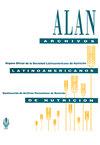产前补充欧米茄3及其对妊娠并发症的影响
IF 0.5
4区 医学
Q4 NUTRITION & DIETETICS
引用次数: 0
摘要
在怀孕期间,omega - 3补充剂越来越受欢迎,因为有证据表明,它不仅有益于未出生婴儿的神经和视觉发育,而且还能预防与围产期发病率和死亡率相关的产科疾病。Omega - 3多不饱和脂肪酸(PUFAs),特别是二十二碳六烯酸(DHA)和二十碳五烯酸(EPA),具有抗炎、血管扩张和抗聚集的特性,这使得PUFAs被用于预防心血管疾病。在这篇综述中,我们详细介绍了补充omega - 3对妊娠不同方面的影响,如预防早产、先兆子痫、产后抑郁和改善妊娠糖尿病期间的代谢。尽管有一些随机临床试验在怀孕期间使用omega-3补充剂,但由于剂量和给药时间的差异,证据仍然不确定。当然,需要更多的高质量研究,包括随机临床试验,来确定孕期补充omega - 3对预防产科疾病的影响。本文章由计算机程序翻译,如有差异,请以英文原文为准。
Suplementación prenatal con omega 3 y su efecto en complicaciones durante el embarazo
During pregnancy, omega 3 supplementation has raised its popularity due to evidence that it would show not only benefits in the neural and visual development of the unborn child, but also in the prevention of obstetrical pathologies associated with of perinatal morbidity and mortality. Omega 3 polyunsaturated fatty acids (PUFAs), specifically, docosahexaenoic acid (DHA) and eicosapentaenoic acid (EPA), possess anti-inflammatory, vasodilatory and anti-aggregating properties, which have led to the use of PUFAs in the prevention of cardiovascular diseases. In this review, we detail the effects of omega 3 supplementation on different aspects of pregnancy such as prevention of preterm birth, pre-eclampsia, postpartum depression, and improved metabolism during gestational diabetes. Although there are several randomized clinical trials using omega-3 supplementation during pregnancy, the evidence remains inconclusive, due to variability in dosage and administration time. Certainly, a greater number of high-quality studies including randomized clinical trials are necessary to determine the impact of omega 3 supplementation during pregnancy in the prevention of obstetric pathologies.
求助全文
通过发布文献求助,成功后即可免费获取论文全文。
去求助
来源期刊
CiteScore
0.50
自引率
0.00%
发文量
31
期刊介绍:
Archivos Latinoamericanos de Nutrición (ALAN) is the official publication of the Sociedad Latinoamericana de Nutición (SLAN), for the dissemination of knowledge in the fields of food and nutrition, principally throughout the American Hemisphere. Articles in Spanish, English, Portuguese and French are accepted, both from the Society members and from nonmembers, in the following categories: 1. General articles (critical scientific reviews); 2. Research articles (originals); 3. Papers in applied nutrition (analytical results from intervention programs and discussion of reconmendations of practical application), and 4. Letters to Editor (short comments of general interest or about scientific facts and results previously published in Archives).

 求助内容:
求助内容: 应助结果提醒方式:
应助结果提醒方式:


